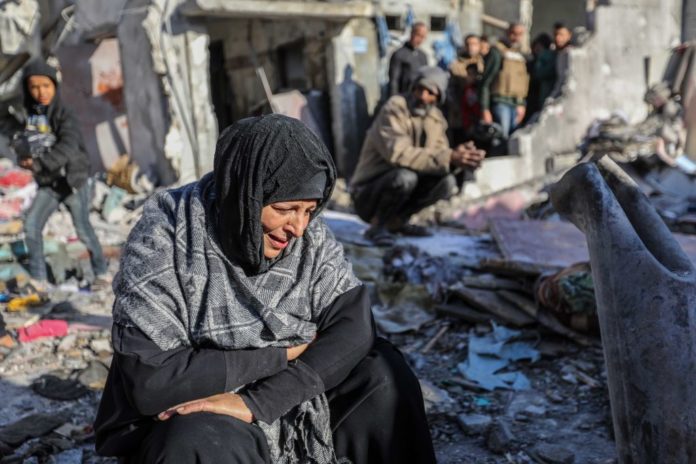The Israeli-Palestinian conflict exacerbates gender inequalities, exposing Palestinian women to violence and economic hardship. Media coverage often neglects their experiences, reinforcing stereotypes. There’s a call for more inclusive reporting and UN support for women-led organizations in peace efforts.
The ongoing Israeli-Palestinian conflict has been a subject of international attention for decades due to its complex historical, political, and socio-cultural aspects. The conflict has had extreme and varied effects on women, exacerbating pre-existing gender inequalities and subjecting women to high risks of violence, displacement, and economic hardship. Media reporting during conflict often reinforces stereotypes and tends to be gendered, ignoring the violence faced by women.
Palestinian women have faced a triple challenge in establishing their rights: living under Israeli military occupation, within a society governed by patriarchal customs, and as unequal members of society subject to discriminatory laws. The conflict has curtailed development opportunities for the Palestinian population and increased violence and discrimination against Palestinian women. Furthermore, the suffering of women has been largely ignored, despite the grave and long-term consequences of the violations committed by Israeli forces in the Occupied Territories.
The impact of the conflict on the health and well-being of Palestinian women highlights the challenges faced by pregnant women and those in need of maternal healthcare. It also addresses the limited access to menstrual hygiene products and the increased risk of sexual violence, STDs, and HIV among women and girls in conflict zones.
Furthermore, the role of gendered media narratives in intensifying the challenges faced by women in the ongoing Israel-Palestine conflict. It shows how media coverage often reinforces traditional gender roles and stereotypes, overshadowing women’s agency, leadership, and contributions to their communities. The gendered discourse in media coverage tends to focus more on broader geopolitical dynamics, military actions, and political leadership, thereby underreporting women’s experiences unless directly related to victimhood.
The underrepresentation of women’s experiences in conflict zones, attributing it to the gendered patterns in media coverage that contribute to unequal portrayals of men and women is significant. It emphasises the need for a more balanced and inclusive representation of women’s experiences in conflict zones, calling for diverse backgrounds, including more women, in news reporting to paint a fuller picture of the lives of both men and women during difficult times.
United Nations must play a role in addressing the humanitarian crisis in Palestine, particularly in supporting women-led and women’s rights organizations. It highlights the emergency appeal for Palestine to support local women’s organizations and emphasises the need for human rights and women’s rights to be central in peace negotiations.
Active participation of Palestinian and Israeli women in peace negotiations, emphasizing the importance of ensuring that women’s voices and perspectives are prominent in the discourse. It stresses the need for fair and inclusive news reporting that actively seeks and shares stories about women in Gaza, highlighting their strengths, leadership, and community contributions.




